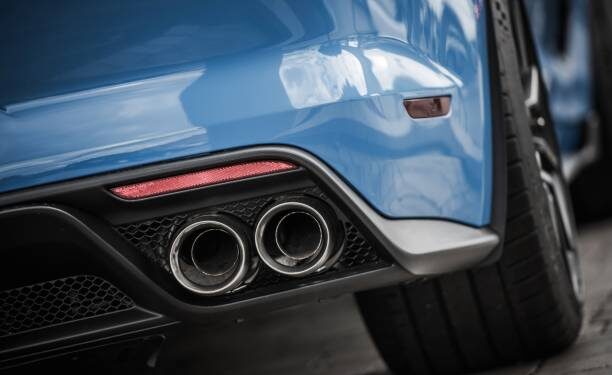A performance exhaust system is one of the best upgrades you can make to improve your car’s power, sound, and overall driving experience. However, to ensure that your performance exhaust continues to perform at its best for years to come, regular maintenance is essential. With proper care, you can extend the lifespan of your exhaust system while keeping your vehicle running at peak performance.
In this blog, we’ll guide you through the key maintenance tips for your performance exhaust system, helping you maintain both longevity and performance.
1. Regularly Inspect for Leaks and Damage
One of the most important aspects of maintaining a performance exhaust system is to regularly check for exhaust leaks or any signs of damage. Leaks can occur at various points along the exhaust system, such as the muffler, pipes, or catalytic converter. These leaks can significantly affect engine performance, causing a loss in power and decreased fuel efficiency.
To check for leaks, inspect your exhaust system visually for rust or holes. A quick and easy test is to start the engine and listen for any unusual sounds, such as hissing or popping, which may indicate a leak. If you suspect a leak, have it checked by a professional mechanic, as even small leaks can reduce exhaust flow and negatively impact engine efficiency.
2. Clean the Exhaust Tips Regularly
The exhaust tips are often the most visible part of your performance exhaust system, and maintaining their appearance is just as important as keeping the rest of the system in good shape. Over time, exhaust gases can cause carbon build-up and discoloration, leaving the tips looking dull or dirty.
To clean the exhaust tips, simply use a soft cloth or microfiber towel along with a mild cleaner designed for chrome, stainless steel, or the material of your exhaust tips.Regular cleaning not only keeps your car looking sharp but also ensures optimal exhaust flow.
3. Check for Rust and Corrosion
Rust can build up on the muffler, pipes, and other components, leading to structural damage and potential failure. Corrosion can also hinder exhaust performance by reducing airflow or causing exhaust leaks.
To prevent rust and corrosion, consider using a rust inhibitor or high-quality exhaust coatings that are designed to protect against these elements. Regularly inspecting the system, especially in areas with high humidity or salty roads, can help identify issues early before they become serious problems.
4. Replace the Gaskets and Clamps as Needed
Over time, the gaskets and clamps in your exhaust system can wear out or become damaged, which can lead to exhaust leaks or loose connections. These components are essential for maintaining a tight seal and ensuring that exhaust gases flow smoothly through the system.
If you notice any signs of damage to the gaskets or clamps, or if you hear rattling or unusual noises coming from the exhaust, it may be time to replace them. Gasket replacement is typically inexpensive, and keeping everything securely tightened will ensure that your system maintains optimal exhaust flow and performance.
5. Ensure Proper Exhaust Flow and Performance
The entire purpose of upgrading to a performance exhaust system is to enhance your car’s performance, so keeping your exhaust flowing freely is crucial. Clogs or blockages in the exhaust system, especially the muffler or catalytic converter, can reduce the overall efficiency and power output of your engine.
If you notice a decrease in performance, such as sluggish acceleration, rough idling, or strange exhaust smells, it could be due to a blockage or restriction in the exhaust system. Be sure to clean the system or have a professional mechanic check for blockages, especially in the catalytic converter, which can become clogged over time.
6. Use High-Quality Exhaust Fluids and Products
To maintain the performance and longevity of your exhaust system, consider using high-quality products that are designed for your specific system. This includes premium fuel additives that can help reduce carbon buildup and keep the system running cleaner for longer. There are also specialized exhaust cleaners that can be used to remove soot and grime from the pipes, especially if you drive frequently in urban environments or short-distance trips.
When you use quality products, you ensure that your performance exhaust system stays free of buildup that could slow down exhaust flow and decrease engine performance.
7. Avoid Excessive Heat and Driving Conditions
Although performance exhaust systems are designed to handle heat, excessively high temperatures can lead to premature wear. If you drive your vehicle hard for long periods, especially at high RPMs or under heavy load, the system will be subjected to higher stress. Over time, this can cause metal parts to warp or crack.
To reduce the impact of excessive heat, try to avoid frequent high-performance driving unless necessary, and always ensure that your exhaust system is properly insulated and protected from extreme conditions. Additionally, try to let your vehicle cool down after high-performance driving to avoid unnecessary thermal stress on the system.
Conclusion:
A performance exhaust system is an investment that can provide years of improved power, sound, and engine performance. However, just like any part of your vehicle, it requires regular maintenance to keep it running at its best. By inspecting for leaks, cleaning the exhaust tips, protecting against rust and corrosion, and ensuring proper exhaust flow, you’ll be able to enjoy the full benefits of your upgraded exhaust system for the long haul.























































